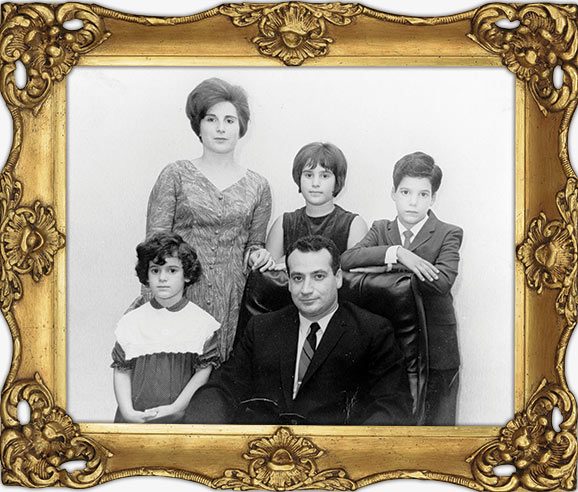
I know it’s going to hurt my mother’s feelings, but she isn’t the greatest Italian cook in the world. She is a great mother and keeps our wacky Italian-American family together—particularly during our dysfunctional holiday gatherings—but she can’t cook. Some may think that it is sacrilegious for a matriarch of an Italian-American family, but my mother’s specialty was boiling hot dogs—and on certain days she even had trouble with that. (I guarantee my mother is not going to talk to me after she reads this column.)
My mother’s cooking aside, I cherish my experience growing up Italian-American in Newark’s North Ward. We lived in a neighborhood where virtually every kid had roots in the same struggling section of Naples in southern Italy. (There was one token Irish kid, Gary McDonald—and his grandma was Italian.)
I grew up thinking that everyone was Italian and that the only food or music in the world that mattered was either cooked by an Italian woman (except, of course, my mother) or sung by Frank Sinatra, Frankie Valli or Enrico Caruso. I was surrounded by Italian family, Italian friends and Italian food.
We played baseball in an abandoned lot on Tiffany Boulevard (named after the old Tiffany Silver Factory) in Newark where my friend Tony Ossetto would make baselines using some sort of white powder. (He said it was chalk; I think it was lye.) We also played stick ball against the back wall of the Pantry Pride supermarket on Mt. Prospect Avenue until the night foreman would chase us away.
After a game, we hung out at Mangano’s grocery, ordering huge Italian sandwiches (we called them subs). We would wash them down with a cream soda or a Coke in an old-style glass bottle that we’d get a few cents for upon return. We’d sit on wooden fruit crates in the front of Mangano’s and argue about sports and girls and who could beat whom in a fight. That would lead to “slap boxing” and the related bloody noses and bruised egos. After a while, Mrs. Mangano and her son Joe would tell us it was time to go and we’d walk or ride our bikes home. The neighborhood always felt safe.
People talk about Italian restaurants, but we never seemed to go out. My grandparents Vincenza and Luiggi Cavello lived right next door, as did my mother’s sister Ana. (We called her Zizzi, because in Italian, Zia means aunt, but in southern Italy, they would inevitably screw up the language, so it became Zizzi.) Why go to a restaurant, Italian or otherwise, when everyone else’s mother (except for my own—mom, I promise this is the last time I mention it) would constantly be cooking Italian?
Some of the most memorable scenes from my childhood were the family fights around the dinner table. There was the time my Uncle Mike—a New Jersey state legislator who passed away many years ago—got into an argument with my father in front of the family. Eventually, my uncle picked up an entire bowl of smelts (a very smelly fish) and dumped it over my father’s head. My grandmother and aunts were all screaming, and the Adubato brothers had to be separated by stronger and wiser great uncles.
While the family fights occasionally still happen, they are not nearly as colorful as they were back then. Those old gatherings shaped our lives because we always seemed to come back together and make up in dramatic fashion.
Growing up Italian-American in New Jersey was never boring and it helped toughen you for the times ahead. I wouldn’t trade any part of it—including my mother’s hot dogs—for anything.
Post a comment below with your experience growing up Italian in New Jersey.



